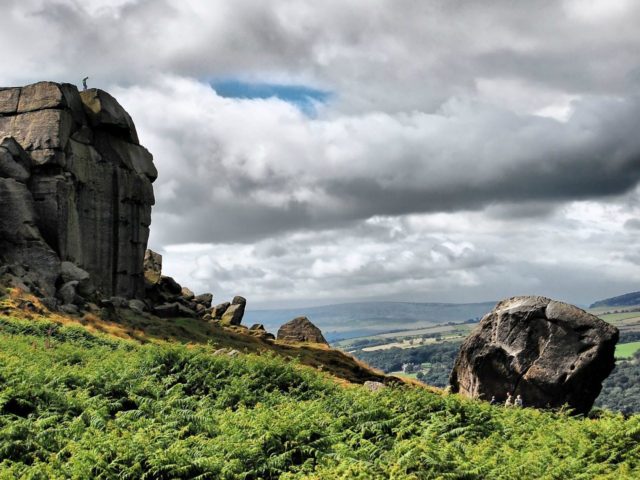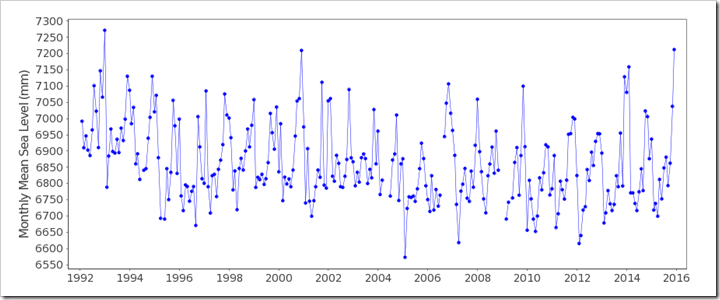Several British mountains may literally disappear any minute now because of rising sea levels.
Or so both the Guardian and the Sunday Times have reported, basing their claim on the flimsy theory that because sea levels have risen in the last century, and because mountains qualify to be mountains by dint of their precise height above sea level, therefore they could soon be downgraded by the Ordnance Survey.
Among the mountains most threatened, apparently, is one in the Yorkshire Dales called Calf Top (pictured).
Calf Top in the Yorkshire Dales only achieved mountain status in September, after the OS determined its true height is a few centimetres taller than was concluded when it was last measured in 2010, putting it just over the required height for a mountain. Any change in the base point would knock it back down again.
It’s a nice conceit, if hardly an original one.
But like so many of the stories written up by environmental correspondents on broadsheet newspapers (tabloids tend, sensibly, not to waste money on such unemployables) it turns out to be a load of nonsense.
According to the Guardian:
The Ordnance Survey (OS) uses mean sea level as the starting point for measuring the absolute height of mountains, which must be a at least 609.6 metres (2,000ft) above sea level – but several peaks in England, Scotland and Wales are only a few centimetres taller than that.
Mean sea level, the halfway mark between high and low tides, is measured by a gauge at Newlyn in Cornwall. But the point used by the OS was established almost a century ago, and since then sea levels have risen and are continuing to rise at an accelerating rate, mainly through climate change.
But as Paul Homewood notes, this is misleading.
Sea levels in Newlyn actually rose faster at the beginning of the last century (before the man-made global warming era) than they have recently. And in any case, only half its recorded, average 1.7mm per year rise is due to sea levels rising; the other half is due to the fact that the land in that South Western part of Britain has been sinking.
Meanwhile, up north – where most of the mountains are – the land has been rising, while sea levels have been dropping.
Here, for example, is the tidal gauge – in Workington, next to the Lake District – nearest those threatened mountains the Guardian mentions:
If ever we are to understand how it is that the global warming scare has managed to embed itself so deeply in the public consciousness, it’s crucial that we appreciate just how malign, dishonest and misleading has been the way it is so often covered in the media.
For environmental correspondents, writing up “soft” stories like this is not merely a way of competing for space on the news pages with the copy of rival specialist departments. It’s also part of their holy mission to propel the alarmist narrative they believe in their hearts to be true into mainstream culture.
The text may comprise a semi-amusing, flier of a non-story about shrinking mountains.
But at least as important for these activist-journalists is the subtext which, in the case of this particular yarn is: sea levels are rising, sea levels are rising and it’s all our fault because of man-made global warming.


COMMENTS
Please let us know if you're having issues with commenting.